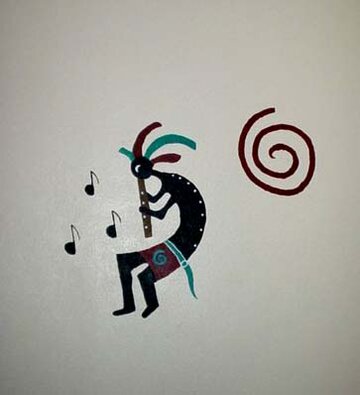@Constance My impression is that you're attempting to reduce the experienced world and the embodied consciousnesses that experience it to 'information', which you seem to think of in only highly abstracted and reductive terms.
That’s correct. The reason I am doing that is because so far as I can tell, all complex things in reality seem to be made up of less complex things.
Songs are made of notes. Bodies are made of cells. Liquids are made of molecules. And on and on. I don’t see how or why “mind” should be any different.
From my perspective, referring to the experienced world as ultimately information - while maybe unromantic - is not inaccurate. For instance, it may be unromantic to refer to a gourmet meal as fuel, but at the end of the day, that’s what it is.
@Constance You apparently do not want to think about consciousness in terms of our felt existence in a local palpable physical world evolved over eons out of the quantum or lower substrate.
Oh no, I actually do. I’m quite interested in that! For instance, I think evolution explains why different organisms (IPSs) experience reality differently.
For instance, when a human and a bumblebee look at (exchange information with) a flower, they see (experience) drastically different things.
So what is the real color of the flower?
@Constance In what you've described, the connectedness between what we feel and think is severed from the environment in which feeling and thinking occur, and consciousness somehow becomes 'metaconsciousness' of feelings and ideas that are not actually felt or thought existentially out of our phenomenal experiences.
I’ll never forget what my high school science teacher once told me. He said, when you reach out and touch something - such as a tabletop - you’re not actually touching it. What you feel is the atoms of which your fingers are composed pushing against the atoms of which the tabletop is composed. The particles of which those two things - hand and desk - are composed never actually touch.
Yes, this produces a very cold, isolating picture of reality, but that does not mean it’s false.
However, I don’t think we - on the macro scale at which we experience reality - “feel” that about reality. I’m not suggesting that what we feel is an illusion per se, but that what we feel is subjective. Again, what color is the flower?
Regarding the idea of meta-sentience: I’m not suggesting consciousness does not exist. It does of course.
What I
am suggesting is that consciousness is distinct from sentience. For example, Helen Keller had sentience before she had consciousness. That is, she had a stream of experience before she had an
awareness of that stream of experience.
I think there are many non-human entities that have a stream of experience such as bugs, worms, mice, etc. An entity can have a stream of experience while lacking an awareness that they are having a stream of experience.
For example:
Rock - no stream of experience (non-sentient)
Mouse - stream of experience, no awareness of stream of experience (sentient, non-self-aware)
Human - stream of experience and awareness of stream of experience (sentient and self-aware)
However, a stream of sentience and a stream of self-aware sentience both come about the same way; that is, by the physical interaction of brains (IPSs) with the surrounding environment.
@Constance So "a stream of sentience is the mind" but the mind is not "experienced by the brain {or the being that has a brain} or the environment, and "a stream of experience is a thing unto itself" that seems to take place in a 'mental unit' in but not of the physical world -- connecting directly neither with the palpable world nor with experiential being in the world.
To clarify: I’m suggesting a stream of mind doesn’t take place “in” a metal unit, but rather is composed of some type of singular, “mental” unit. For example, a stream of music (a song) is composed of notes; we wouldn’t say a song took place
in a note.
@Soupie Furthermore, I think streams of sentience resulting from “simple” brains (or brain-like systems) interacting with the environment are primitive compared to streams of sentience resulting from the interaction of a human brain and the environment.
@Constance I'm confused by that reference to brains as "interacting with the environment" since you seem to allow no ground for such interaction in what you've characterized as the mutual discreteness of mind, brain, and environment, having eliminated consciousness from your theory.
Hmm, no; on the contrary, the stream of experience arises
only as a result of the
ongoing physical interaction of the brain/body with the environment.
Back to the music analogy: although we can say a song, instruments, and instrumentalists are discrete, they are intimately connected. Such is the relationship of the mind, body, and environment.
Also, while I do describe the mind, brain, and environment as discrete, from the perspective of reality consisting of a foam of quantum particles such discreteness doesn’t really exist.
@smcder had mentioned a vortex in water. That’s a beautiful analogy!
That’s the idea of the primal substance and how this substance has differentiated into systems such as brains that interact with other differentiated things such as a gentle breeze.
Think of humans, planets, cities, cars, toothbrushes, and everything else as vortices that have differentiated - not in water - but in the sea of particles which make up our universe.
We feel, experience, and think on the macro level - the level of differentiated vortices - but just as vortices are composed of water and water composed of H2O, so too are we - both our bodies and our minds - composed of more fundamental units.



